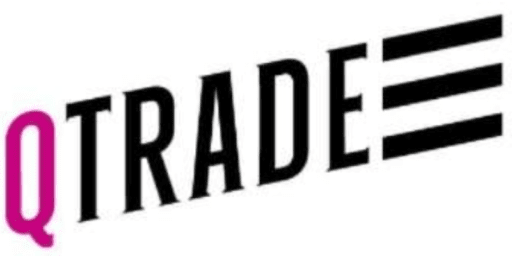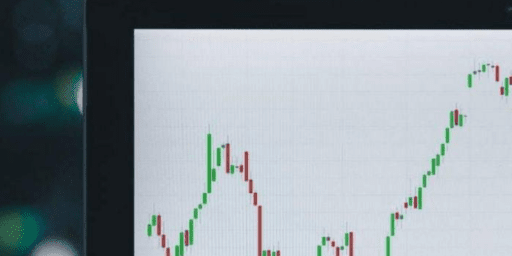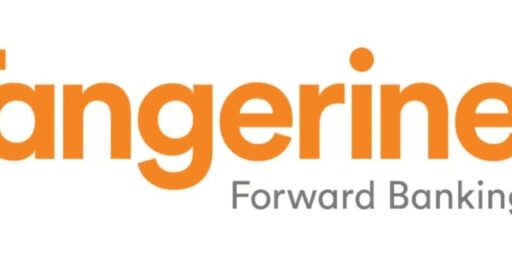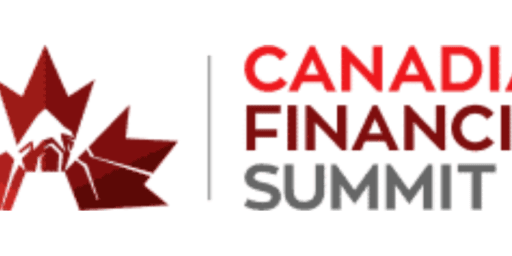The Best ETFs for Canadian Expats Around the World
When my wife and I decided to move to Qatar, I wanted to check and make sure that my index investing strategies could still be carried out through my discount brokerage account, and what sort of expat-specific considerations there might be.
After checking with my usual sources (all things Andrew Hallam, Dan Bortolotti, and Jonathan Bender) they confirmed what I had initially thought to be true:
Canada has incredibly expat-friendly ETFs that make it easy to invest in companies from around the world.
The most important thing to realize when reading through the finer details of this little expat ETF guide, is that if your eyes start to glaze over – just stop reading and choose an all-in-one ETF, or opt for the even simpler method of using Canada’s expat robo-advisor at CI Direct Investments.
Do NOT get paralyzed in your quest to analyze. Getting the details might provide you with that last little cherry on top, but you can get the vast majority of a tasty investment sundae – without understanding all of the nitty gritty!
Decision #1: Will You Always Be an Expatriate or Will You Emigrate Back to Canada One Day?
Before you start selecting specific ETFs for your portfolio, you should first determine where you think you’re most likely to retire.
Most experts recommend tilting your portfolio in the direction of your home country, because it might benefit you to purchase ETFs in the currency that you’ll be spending on everyday items when you’re retiring (so that you don’t have to worry about converting currency back and forth).
If (like the majority of Canadian expats) you plan on emigrating home one day and re-establishing your residential ties, then it makes a ton of sense to look at ETFs that trade on the Toronto Stock Exchange (TSX). Most of this article will focus on that group.
If you instead believe that you’d like to land someplace else (even if you don’t know precisely where yet) then I’d check out what Hallam calls a “nomad portfolio” that doesn’t tilt in any specific direction.
The basic idea is that you could easily continue to invest in Canada-domiciled ETFs (found on the Toronto Stock Exchange) and just not tilt your portfolio towards Canadian companies – or you could open an IBKR account and select ETFs from the exchange that operates in the same currency you get paid in.
For example, if I thought the chances were pretty good that I’ll retire in Europe, and I was currently working in Portugal, I’d want to purchase an ETF in Euros – such as the Vanguard FTSE All-World UCITS ETF (VWRL) based in Ireland.
Decision 2: How Complicated Do You Want to Get?
If you want the absolute easiest way to invest as an expat, it’s really worth checking out the only Canadian robo-advisor that deals with Canadian expatriates. Read our full CI Direct Investments review here.
You will pay about $50-per-$10,000-invested more, on an annual basis, than the DIY ETF options we’re about to get into – but it’s still much much cheaper than the mutual funds and crazy insurance-linked investment schemes that many Canadian expats are invested in.
In return, you get absolute hands-off investing, and someone to answer the odd question via email or online chat. They use the same index investment strategies that are recommended by everyone who understands investing and is not getting a commission.
Robo-advisors aren’t the absolute cheapest option – but you will be MUCH further ahead paying for some convenience and starting TODAY than you would be if you just kept reading and delaying for another six months.
If you read our article on index investing options for expats, and weren’t overly intimidated, then you can safely jump to the next level of complication, and build an index ETF portfolio.
Below you’ll see a quick graphic of the price-to-convenience factor when it comes to building an ETF portfolio in Canada.

Several Canadian ETF companies have recently come out with these excellent little tools called all-in-one ETFs. If you want to cut costs almost to the bone – but still keep life incredibly simple – then simply pick one of these ETFs and buy it everywhere. Buy it in your RRSP, your TFSA, your non-registered account – just buy it as often as you can afford to.
Then just leave it alone.
Ignore everything else you hear…and leave it alone.
These “complete portfolio ETFs” will instantly diversify your investment dollar into shares of thousands of companies and bonds from all over the world.
I have written extensively about these products, and I think their simplicity makes them an incredibly attractive product for Canadian investors (whether they are expats or not). There is no need to worry about rebalancing or almost any math at all. You simply buy them and forget about it. Check out this article for all the updated details on these products.
RRSP & TFSA for Expats Note: If you’re wondering about RRSP and TFSA rules, check out our becoming a Canadian non-resident article for more information.
Now, there is one more layer of complexity to address if you want to cut your index investing costs to the smallest margin possible.
The idea here is that within your investing portfolio you’ll have separate ETFs for your Canadian stocks, your bonds, and your non-Canadian (rest of the world) stocks. That last grouping can be broken down even further into sub-categories such as USA stocks, non-USA developed country stocks, and emerging market stocks.
If you choose this path, you will have to track each ETF and understand that if it goes up or down relative to the others, you will have to “rebalance” your portfolio by selling some of the asset that just did well, in order to purchase more of the asset that has not done well (and consequently is now too small a part of your portfolio).
Both a robo-advisor and the all-in-one ETFs described above will do this automatically for you. The cost difference is going to be about $10-per-$10,000-invested each year. So if you have a $200,000 portfolio, you’ll save $200 each year – but you’ll also have to do all of your rebalancing and tracking yourself.
I personally use two ETFs (we’ll get to why I don’t use bonds later in the show), BUT I almost always recommend the all-in-one ETF options. I know that this is an inherent contradiction, but stay with me here…
In my experience, the vast majority of Canadians who say they are going to embrace this ultimate fee-cutting solution never actually execute their proposed strategy. They get tied up in the details, they read too many contradictory articles, they watch too much 24/7 stock investing news, and then decision fatigue takes over and no actual investment ever gets made. This is a tragedy that I want you to avoid!
If you believe that cutting your costs to the absolute minimum is worth understanding all of the math involved in rebalancing – and some slight tax advantages – then read on. If you want 95% of the benefit with 20% of the work – then go with the all-in-one ETF option.
In addition to the convenience factor of just logging into your brokerage account and buying the same ETF over and over and over again – all-in-one ETFs have another hidden benefit: You’re not tempted to pretend to be Warren Buffett! It’s human nature to want something for nothing.
Many well-meaning investors start out saying, “Yes, I believe in index investing,” and then they start to say things like, “Maybe now is not a great time for Canadian markets,” or, “I think emerging markets are going to get outsized returns.” Before they know it, they have wandered far away from their initial goals, and are making all kinds of sub-optimal decisions.
All-in-one ETFs take these decisions out of your hands; consequently, investors are not tempted to slant towards one type of asset or another. Several academic studies and papers written by investment platforms show that investors who are in these types of passive funds do better in the long run because they stay out of their own way!
Decision 3: Do I Want to Trade Simplicity for More Tax Efficient Investment Returns? (Avoiding the Dividend Withholding Tax)
I love the Vanguard company in a way that only a personal finance geek can.
I love them because they pioneered a way for small-fry investors like myself to invest in the stock market for almost-free. They also were amongst the first to offer super-easy index investing solutions. I want to be loyal to Vanguard.
But Horizons ETFs make it so hard for a Canadian expat to be loyal to Vanguard!
Now – it’s worth repeating – don’t get so bogged down in this comparison that you don’t choose one or the other. The differences are relatively small potatoes.
If you’re a typical Canadian investor who hasn’t left Canada, you’ll probably do all of your investing within your TFSA or RRSP. If both you (and your partner) are maxing out your RRSPs and TFSAs, then you’re doing pretty darn well. In that situation, I’d stick with Vanguard.
However, if you’re reading this, you’re likely not a typical investor – you’re an expat who is probably investing in a non-registered account (because you should not be contributing to your TFSA or RRSP).
Due to the fact you have no nice tax umbrella to shelter your investments, the differences between Vanguard’s ETFs and Horizons’ ETFs become more important.
Without going into soul-crushing detail, Horizons ETFs have created a neat little trick that allows them to create an index-linked ETF that passes along all of the dividend income from the companies inside the ETF – as capital gains.
If you read that sentence and got a headache – just go back to the all-in-one ETFs, or the robo-advisor – and never look back!
If you’re still interested…
In order to understand why money coming to you in the form of capital gains vs dividends is a big deal, it’s worth reviewing just what they are. A capital gain results when you purchase an asset (in this case an ETF) and then sell it (5 minutes or 50 years later) for more than you paid for it. That capital gain is allowed to build and compound on itself without any taxes being taken off of it each year – which makes it super tax efficient.
A dividend on the other hand, is the money that a company (or in our case, all the companies in a given ETF) pays out to their shareholders every so often (usually monthly or quarterly).
This money comes to you as cash in your discount brokerage – where you can choose to take it out, invest it in other stocks, or enter into a “DRIP” where the dividends will automatically be re-invested to buy more of the ETF/stock that they came from. Because dividends are paid throughout the year, there are taxes payable on them.
As a Canadian expat investor, you will have to pay withholding taxes to the Canadian government on the dividends generated by your ETFs. These taxes are NOT a huge deal, as they are only applied to the dividend portion of your stock return, and not the capital gains. This would be a typical situation for a Canadian expat investor:
Jane invests $100,000 in her excellent Vanguard index ETFs (held within her discount brokerage non-registered account). The stock market returns 9% that year. Broken down it looks like:
i) The ETF is now worth 7% more than it used to be, so Jane finishes the year with $107,000-worth of ETFs.
ii) The ETF paid out roughly a 2% dividend, so Jane now has $2,000 sitting in her discount brokerage account that she can either take out or re-invest.
iii) The $7,000 capital gain is not taxed until Jane sells the ETF. (If she is living in a capital gains-friendly country, then it won’t be taxed at all!)
iv) The $2,000 dividend will have between one and three layers of withholding tax applied to it (depending on where the dividends are from) – and consequently will be taxed at 15%-30%.
v) In a worst-case scenario, Jane would owe $2,000 x .3 = $600.
vi) That $600 dividend withholding tax is only 6.7% of Jane’s total investment return, and only .56% of Jane’s entire investment portfolio.
In conclusion – paying the withholding tax on dividends kind of sucks – but it’s not going to cripple your expat investing strategy by any means.
The Horizons Advantage:
So, you can see now why when Horizons “magically” turns their dividend investment returns into capital gains, it is to your benefit as an expat investor using a non-registered account.
That being said – the key lies in the “magic” that Horizons uses to turn their basic dividend-water, into delicious capital-gain-wine (my favourite vintage).
It’s a somewhat complicated (but completely legal) series of investing manoeuvres that I’ll try to summarize here:
- Most ETFs simply own shares of the companies or bonds that make up their index. They’re very easy to understand.
- Horizons ETFs do NOT own shares of the companies or bonds that make up their index.
- Instead, Horizons works with Canadian National Bank (a very stable financial partner) to trade or “swap” your money for the equivalent of the total market return (total market return = capital gains plus dividends) that your ETF provides.
- So in the example above, if Jane owned a Horizons swap-based ETF, her money would be traded or “swapped” with Canadian National Bank for the $109,000 (her original $100,000, plus the 7% capital gains and 2% dividends that the underlying market made).
- Jane now owns an investment product that is completely capital gains-based, and her overall returns should be almost exactly the same as the index she was tracking (minus an insignificantly small fee).
This is oversimplifying things a bit – but hopefully you get the main idea: By exchanging some investments (your money) for other investments (the total return of a given index), Horizons ETFs allow Jane to get all of her investment returns back in a way that shelters them from the tax man.
If Jane lives in a country like the UAE, Qatar, Hong Kong, or Singapore – then she will owe no taxes at all on those investment gains!
The Swap ETF Question
In addition to the layers of complexity scaring some investors, Horizons has another potential issue with their unique “Swap ETF” structure: The Taxman.
Obviously the Canada Revenue Agency is not a big fan of investors getting away from paying dividend taxes. Consequently, they have been involved with a cat-and-mouse regulatory game with Horizons.
Over the last few years, the CRA has made several regulatory changes designed to take away this dividend tax-free strategy, and Horizons has responded by subtly changing the structure of their ETF in order to stay one step ahead.
I think it’s a pretty good bet that eventually the government and CRA will permanently close this loophole. That said, at the current time, Horizons ETFs are a 100%-legal way to avoid paying withholding taxes on your dividends – and are a valuable tool in the Canadian expat investing toolbox.
My Most Recommended ETFs for Canadian Expats
If you look at the decision points above, you’ll realize that there just isn’t a one-size-fits-all answer when it comes to the best ETF options for Canadian expats.
Here’s my shortlist:
Not Retiring in Canada – and Don’t Need My ETFs in Canadian Dollars
FTSE All-World UCITS ETF (VWRL)
Vanguard Global Aggregate Bond UCITS ETF (VAGP)
This simple portfolio will let you invest in several thousand companies, and several thousand bonds, with two quick clicks of your mouse.
Note: There are cheaper global index funds available in the USA, but there are some really sticky grey-area tax rules when it comes to having your assets domiciled (aka: home-based) in the USA.
Most of the international investing experts that I’ve read are worried about the taxation of assets located in the USA when you pass away. Consequently, I’d recommend using these Irish-domiciled ETFs, which snag some withholding tax benefits that Canada’s ETFs don’t incorporate. If you want to retire in the USA – then go ahead and use the US-based ETFs.
I Want to Keep Things as Simple as Possible
Horizons Growth TRI ETF Portfolio (HGRO)
Horizons Balanced TRI ETF Portfolio (HBAL)
If you read my all-in-one ETFs article you’ll be surprised to see that I did not recommend my usual Vanguard all-in-one ETFs here. The difference is that those recommendations are made for Canadian residents.
If we take taxes out of the equation, I like Vanguard’s Canadian ETFs just a hair better because of slight differences in how the two groups of funds distribute your investment dollars all over the world. It’s important to remember that we’re talking really small-scale geeky stuff here, and that it’s unlikely to make a big difference one way or the other.
The dividend-free nature of the Horizon ETFs just makes them an unquestionably better bet for Canadian expats. As long as they keep that advantage, it’s tough to recommend anything else.
Deciding whether you want to go with HGRO or HBAL depends on what you want your asset allocation to be. Check out our real estate investing vs index investing for Canadian expats article if you want a refresher on how you should determine your risk tolerance and asset allocation.
I’m an Investing Geek and Want the Absolute Lowest Costs
Horizons S&P/TSX 60 Index ETF – HXT
Horizons S&P 500 Index ETF – HXS
Horizons Intl Developed Markets Equity Index ETF – HXDM
Horizons Emerging Markets Equity Index ETF – HXEM
Horizons CDN Select Universe Bond ETF – HBB
The combination of these five ETFs will do the following for you versus just buying HBAL over and over again.
- Lower your overall cost of investing by about $10 per $10,000 invested each year.
- Allow you to determine the exact ratio of Canada Stocks/World Stocks/Bonds that you want in your portfolio.
These are the ETFs that I use in my personal expat portfolio.
Decision 4 – What Should My Asset Allocation Be?
Now that you understand index investing, and know what tools are at your disposal – as well as where to buy them – it’s time to decide exactly how those tools should be used in your personal situation.
Again, there is no one-size-fits-all solution to the question of how much of your retirement nest egg should be in stocks and how much should be in bonds.
It really boils down to what your investing goals are and what your risk tolerance is. And while the concept of your specific risk tolerance might sound simple – it is often a bit more complicated.
I encourage you to read our free “Can I Retire Yet?” eBook – where we discuss asset allocation in much greater detail.
Unique Situation of Expat Teachers and Other Pensioned Professionals
I used to get some pretty weird looks in my staffroom when I’d say, “Every teacher who retires with a full pension is a millionaire!”
Inevitably I’d get eyerolls and exasperated sighs as I tried to explain the math behind how much money you’d need in the bank in order to generate a monthly cash flow equal to our pension cheques.
If you’re fortunate enough to have been a teacher, a nurse, or any other profession with a good pension program in a country such as Canada, the USA, the UK, New Zealand, Australia or most of Western Europe – then you might already have a pretty safe “overall portfolio”.
Assuming you didn’t withdraw your pension contributions when you left your home country (normally not a great idea – but that’s a longer discussion for another day) AND that your pensions are government-backed (which they won’t be if you worked for a private corporation), then your pension payments are likely safer than almost any other type of investment.
Since you will be receiving these payments when you retire (in the case of most Canadian professionals, you become eligible between 55 and 65 years of age) they should represent a significant part of your overall retirement plan.
Personally, I feel quite comfortable using my pension as my “safe bond allocation” and having my entire investment portfolio in stocks.
As a couple, my wife and I’s inflation-adjusted pensions at 55 will generate roughly 25% of what our predicted spending will be, and consequently, we’re fine with having no additional fixed income (bonds) in our investment portfolio.
I've Completed My Million Dollar Journey. Let Me Guide You Through Yours!
Sign up below to get a copy of our free eBook: Can I Retire Yet?











it seems Horizons Growth TRI ETF Portfolio (HGRO) and Horizons Balanced TRI ETF Portfolio (HBAL) have changed recently. Do they still offer the same advantages to expats?
Hi,
So if I understand this correctly;
1) Yes… I’ve heard anecdotal stories about several brokerages allowing you to keep the account. It likely has to do with how big the AUM are and how much money they are making from you. (Are you worth the increased paperwork.)
2) Correct!
Thanks!
It’s interesting, Desjardins, CI Direct, Mogo, WealthSimple, Questrade (sort of), TD (sort of not really), Qtrade (sort of not really), all now offer commission free trading, but if I’m not trading options or doing anything that incurs fees, they won’t make a direct profit off of me. However a lot of these firms also offer investment products like mutual funds and etfs. One would think they would do something like the financial institutions do which is require a minimum balance in chequing accounts, but instead they could do something like, if you hold 25k in our D/F series mutual funds or ETFs we will waive fees, because we’re making enough off the MER to justify offering you commission free on the rest of your trades.